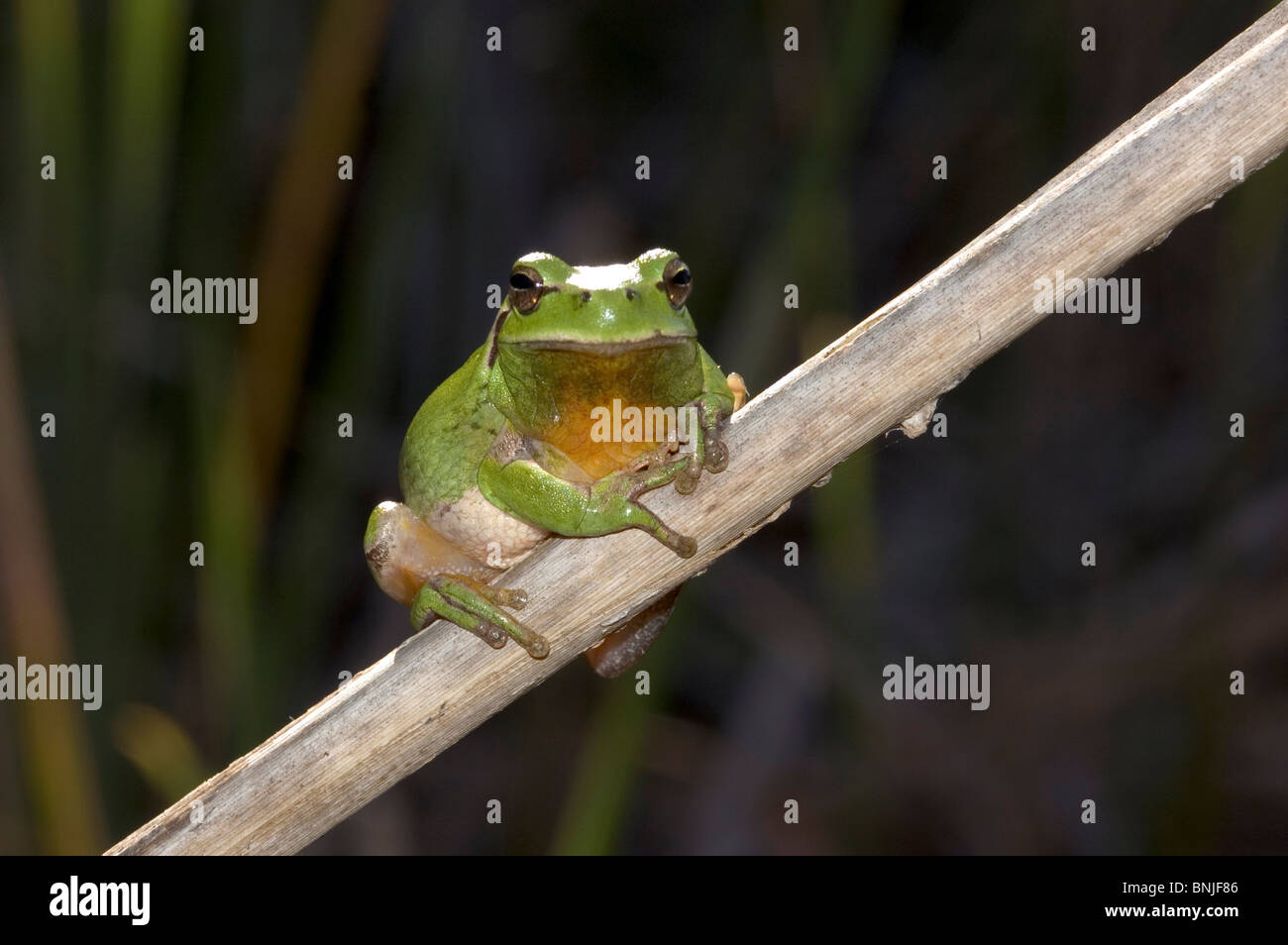
Mediterranean Tree Frog Stripeless Tree Frog France Southern France Hyla meridionalis animal
All about the tree frogs in France The common tree frog in France, like its cousin, the stripeless tree frog, is different from other French frogs in that it has the possibility to climb in vegetation or indeed on almost any other structure by virtue of adhesive pads on the ends of its digits.
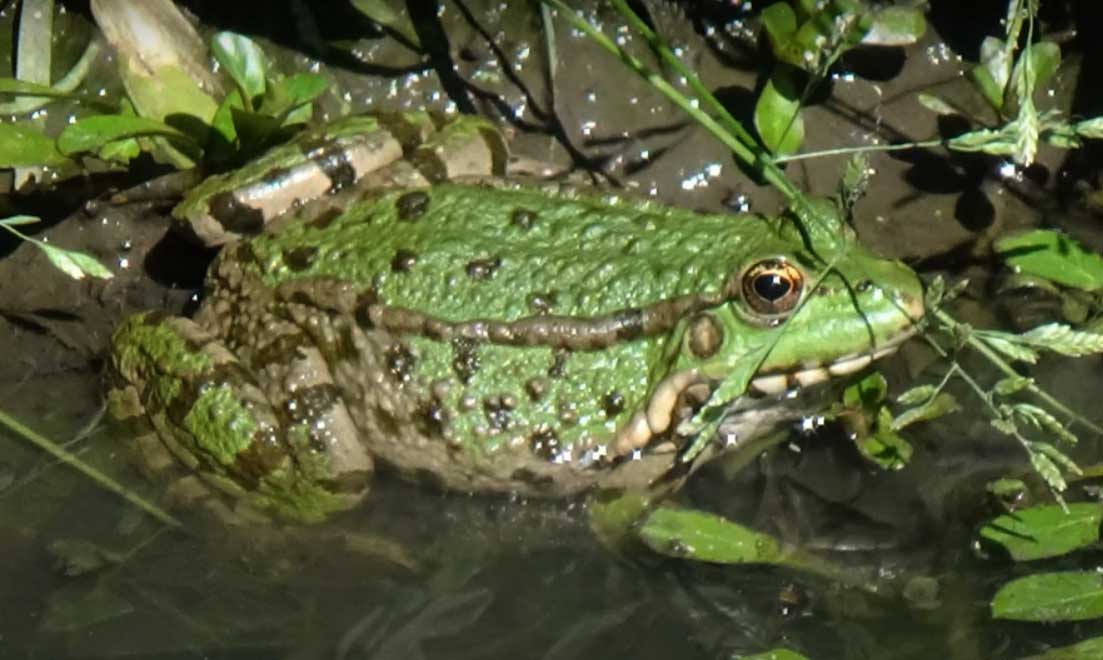
About the Edible Frog France
Frogs are eaten, notably in France. One dish is known as cuisses de grenouille, frogs' legs, and although it is not especially common, it is taken as indicative of French cuisine. From this, "frog" has also developed into a common derogatory term for French people in English.
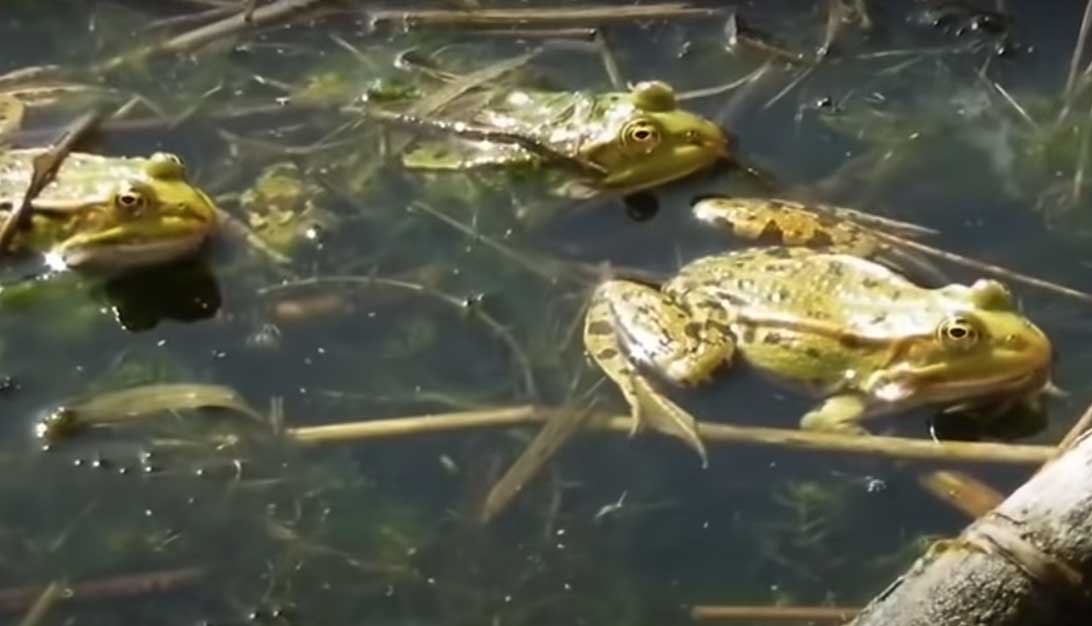
About the Marsh Frog France
220ml flour. 310 ml milk. four cloves finely chopped garlic. 40 ml dry white wine. one tablespoon chopped parsley. juice of one lemon. Method. Place the legs in a dish with the milk and leave for several hours to marinate and become tender. When the legs are ready, mix salt and pepper with the flour then roll the legs in the flour mix.
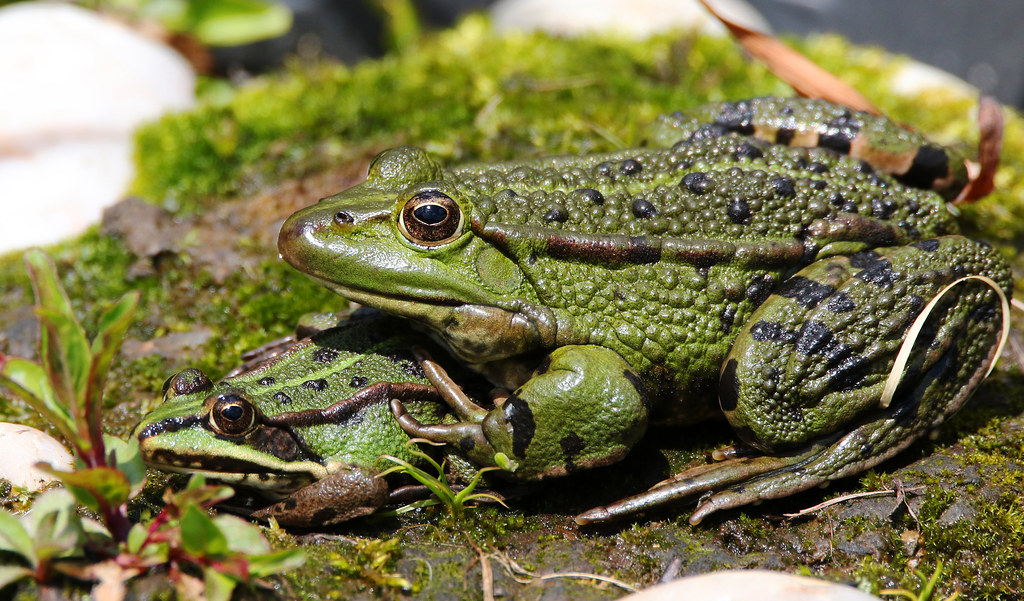
Green Frogs. Taken in Autrppes, Picardie, France. Chris Kilpatrick Flickr
Grenouille Rieuse (Alt.English name - Lake Frog) Marsh frogs are the largest native frog in France and can reach up to 13 cm in length; with specimens that exceed 10 cm being almost exclusively females.

Common tree frog on reeds, La Brenne, France . News Photo Getty Images
The 27-country bloc does not restrict imports, however, and every year about 4,070 tonnes of frogs netted abroad are served up on European plates. The craving for frog meat appears highest in Belgium, which takes 70% of the imports, but Pro Wildlife says most of these are then sent on to France, which directly imports 16.7%.
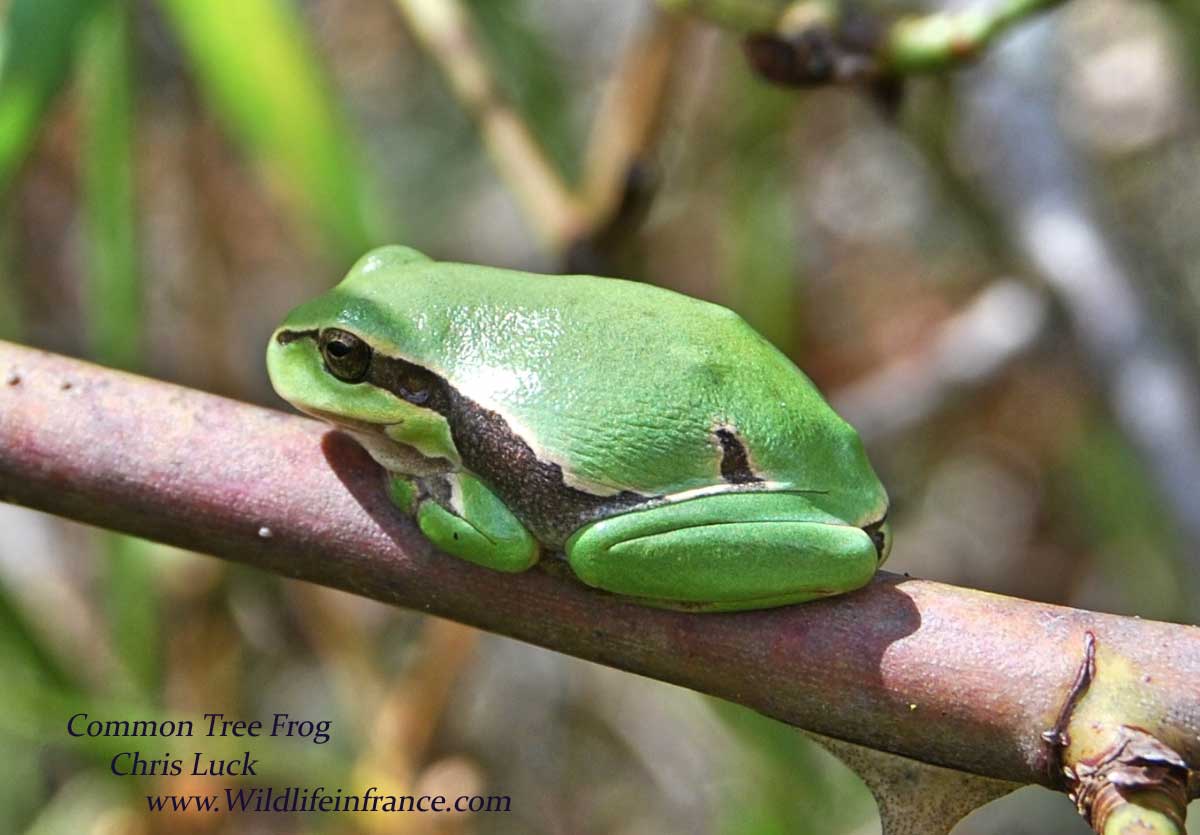
About the Common Tree Frog France
Frog legs, or cuisses de grenouille as it is known in France, are a traditional dish particularly found in the region of the Dombes ( département of Ain ). Eaten for over a thousand years, they have been part of the national diet of France. [2] Roughly 4,000 tonnes of frog legs are consumed every year in France. [7] China
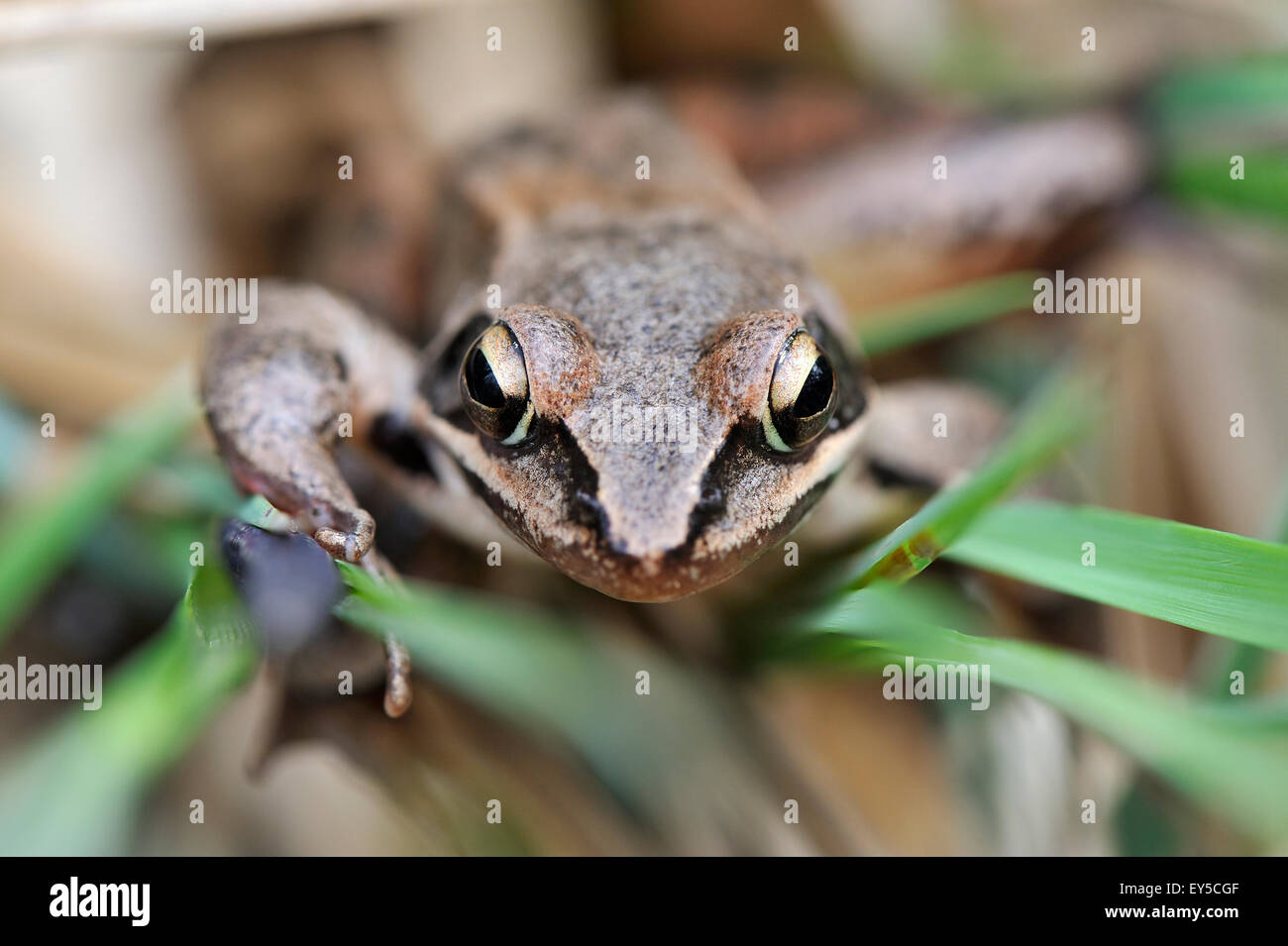
Grass frog in the grass France Stock Photo Alamy
10 common frogs found in France: 1. The agile frog is the most common type of frog found in France. It has a green or brown body with dark spots, and can grow up to 8 cm long. 2. The common frog is also quite widespread in France. It is usually brown or olive green, with darker patches on its back and sides. It can reach up to 10 cm in length. 3.
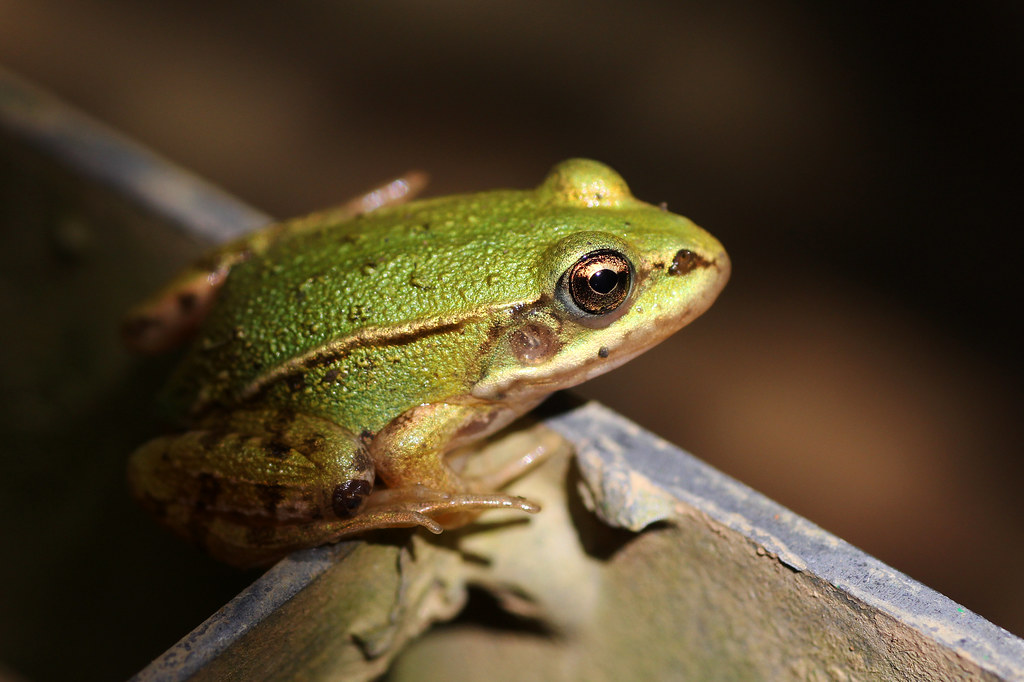
Frog (8226) Near Saint Algis, Picardie, France. Shelley Flickr
Why Are The French Called Frogs? The reasons why the French are called frogs are possibly due to them eating frogs' legs as a delicacy. It could relate to the wet, marshy land of the Low Countries or La Grenouillère (a hamlet outside of Paris.) It may be a reference to counter-revolutionaries in the French Revolution.
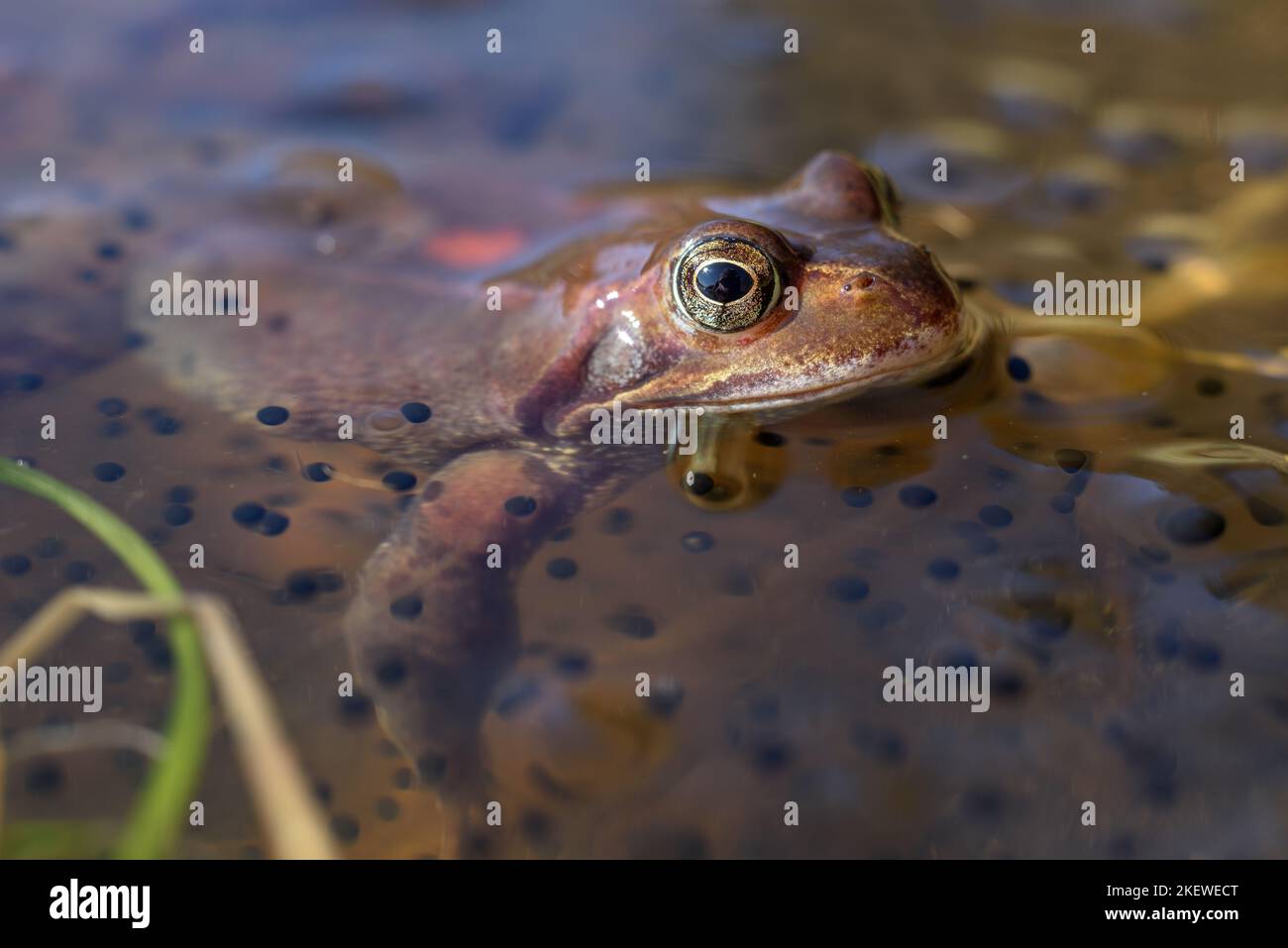
Common frog (Rana temporaria) on the nesting ground in early spring. Vosges, Alsace, France
Frogs have been eaten in France for centuries, particularly in the country's east, but have been protected species since 2007 because of rapidly declining numbers. Only small wild harvests for.

The Beret Project Why the English call French Frogs...
Written by Nature Blog Network in Animal Species France is home to a diverse range of frog species, with a total of 19 different types found throughout the country. While some of these frogs are native to France, others have been introduced and are now considered invasive.
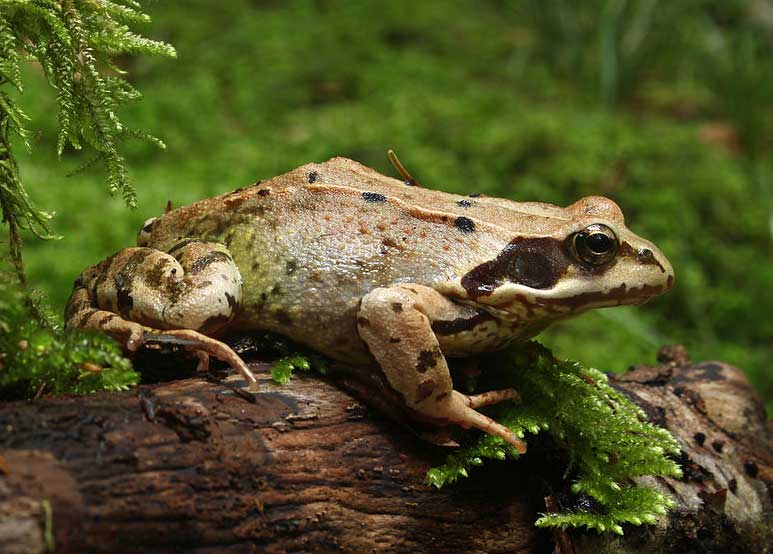
About the Common Frog France
A visit to France's first frog farm Despite being known as French cuisine, frogs' legs are only recently being farmed on French soil. By Anna Richards Published December 14, 2021 Comments ( 17) Photo: Anna Richards When thinking about French cuisine, some of the stranger national dishes might pop into your head, like snails or foie gras perhaps.
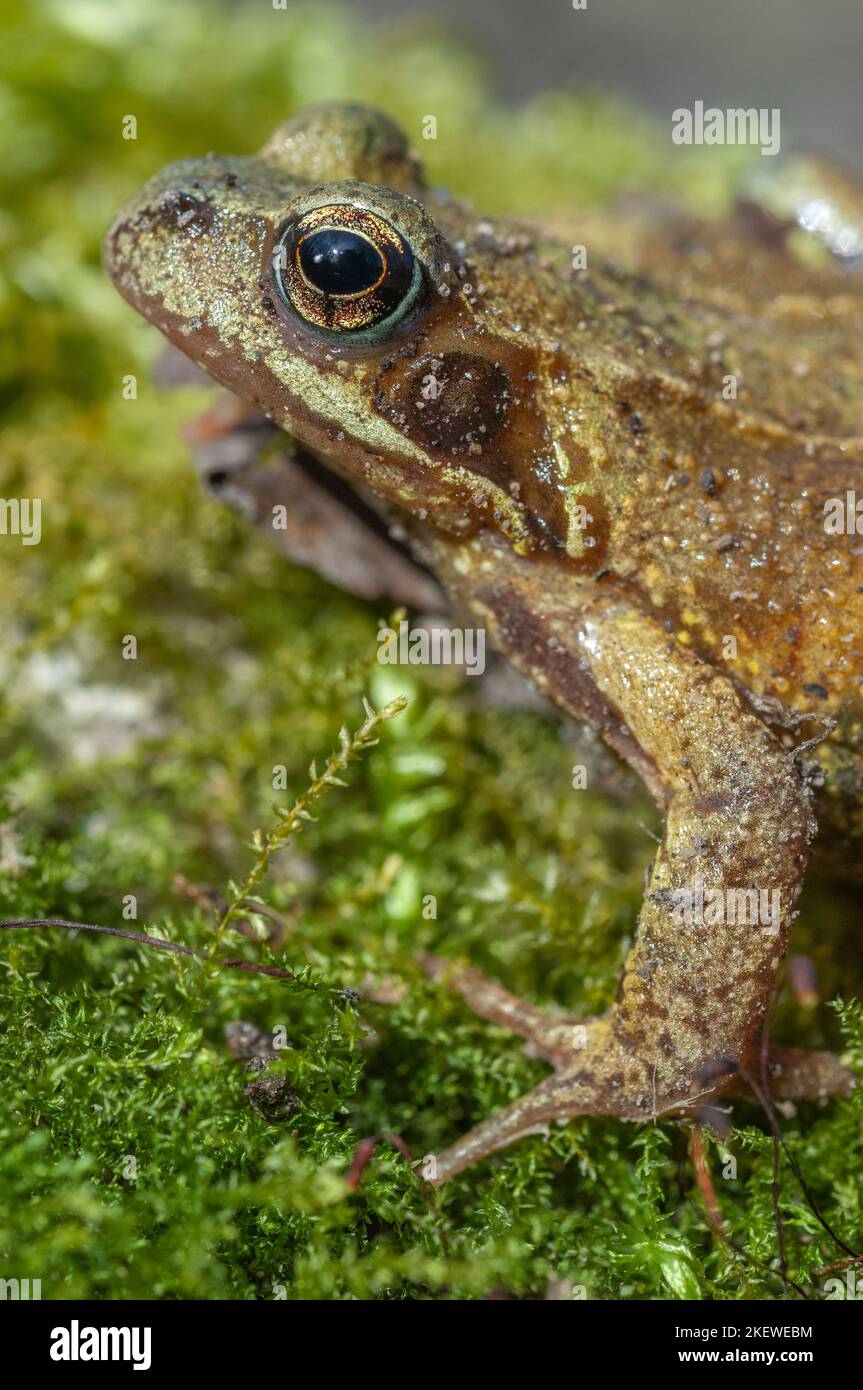
Common frog (Rana temporaria) portrait in early spring. Vosges, Alsace, France Stock Photo Alamy
Frog legs are a delicacy which have been eaten for centuries. Born out of food shortages and necessity, cuisses de grenouilles (meaning "frog thighs") have been part of French cuisine for over a 1000 years. Today they are considered a delicacy, and nearly 70 tonnes of frog legs are consumed every year in France.
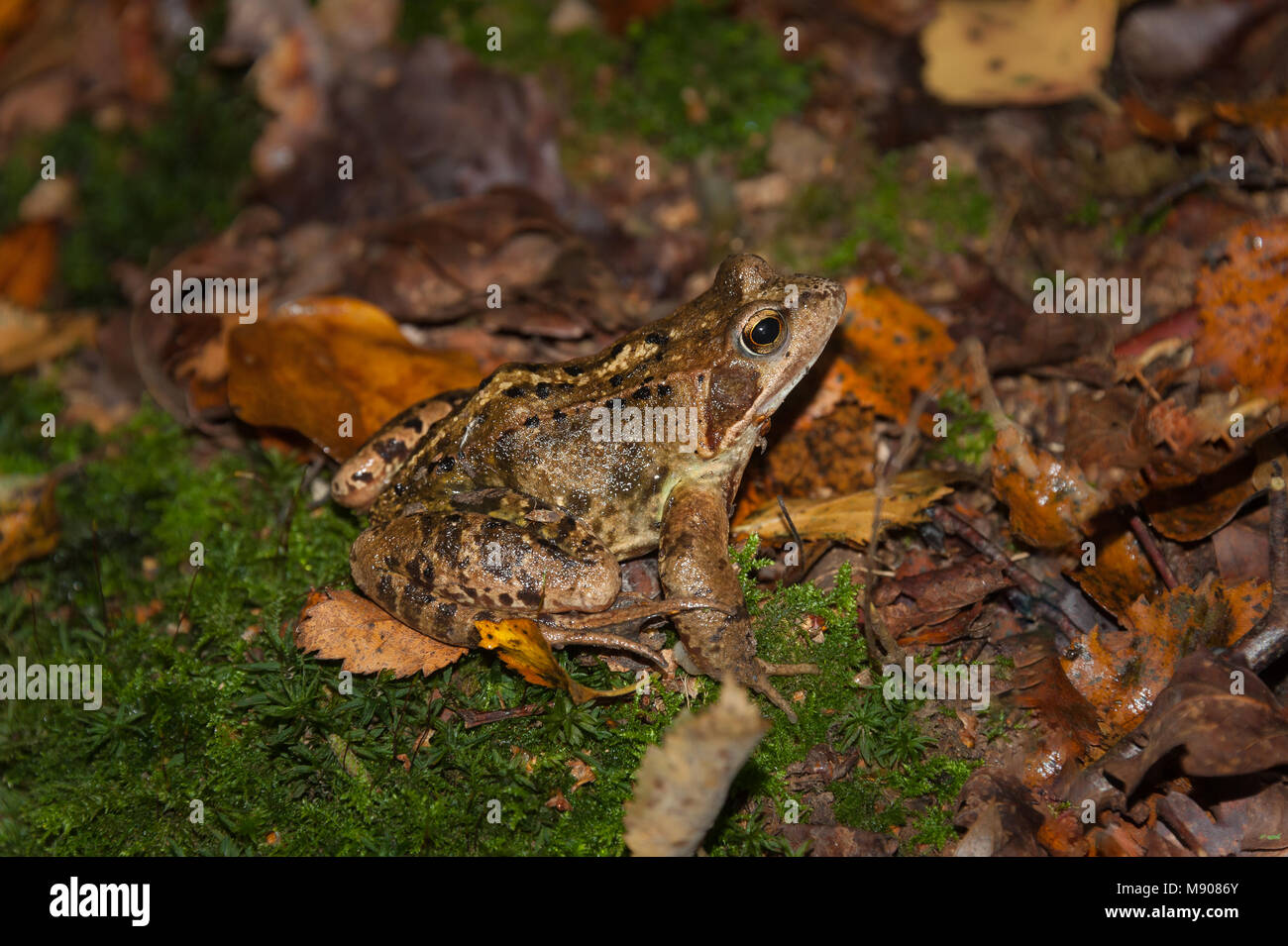
A single european grass frog (Rana temporaria) in France Stock Photo Alamy
frog, any of various tailless amphibians belonging to the order Anura. Used strictly, the term may be limited to any member of the family Ranidae (true frogs), but more broadly the name frog is often used to distinguish the smooth-skinned, leaping anurans from squat, warty, hopping ones, which are called toads. Audio clip of a frog.
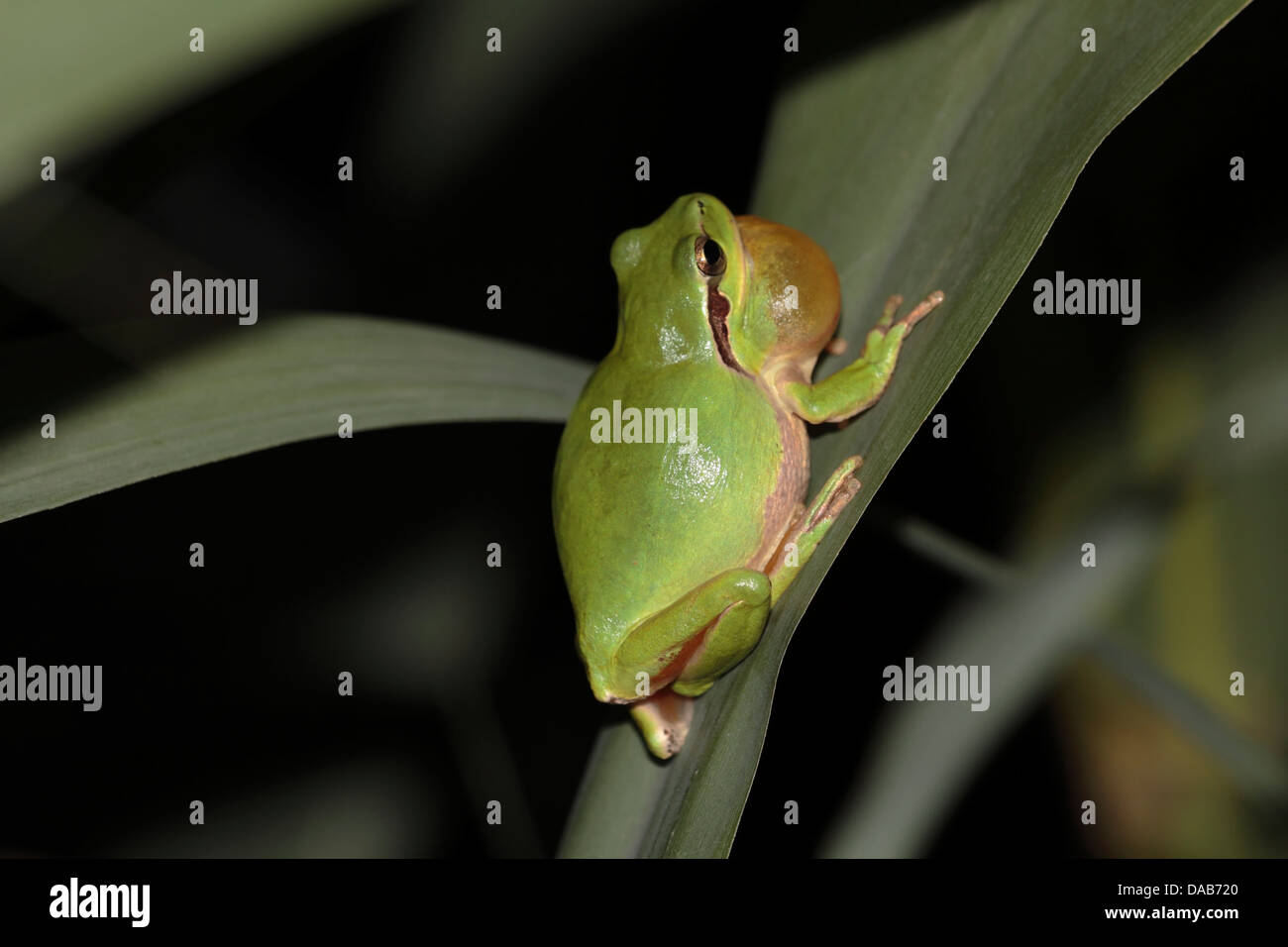
Tree frog in a swamp in France Stock Photo Alamy
Frog species in France encompass a wide range of amphibians belonging to the family Ranidae. These species are often found in various habitats, including ponds, marshes, and forests, across different regions of the country. Some of the well-known frog species in France include the European common frog, pool frog, agile frog, and green frog..
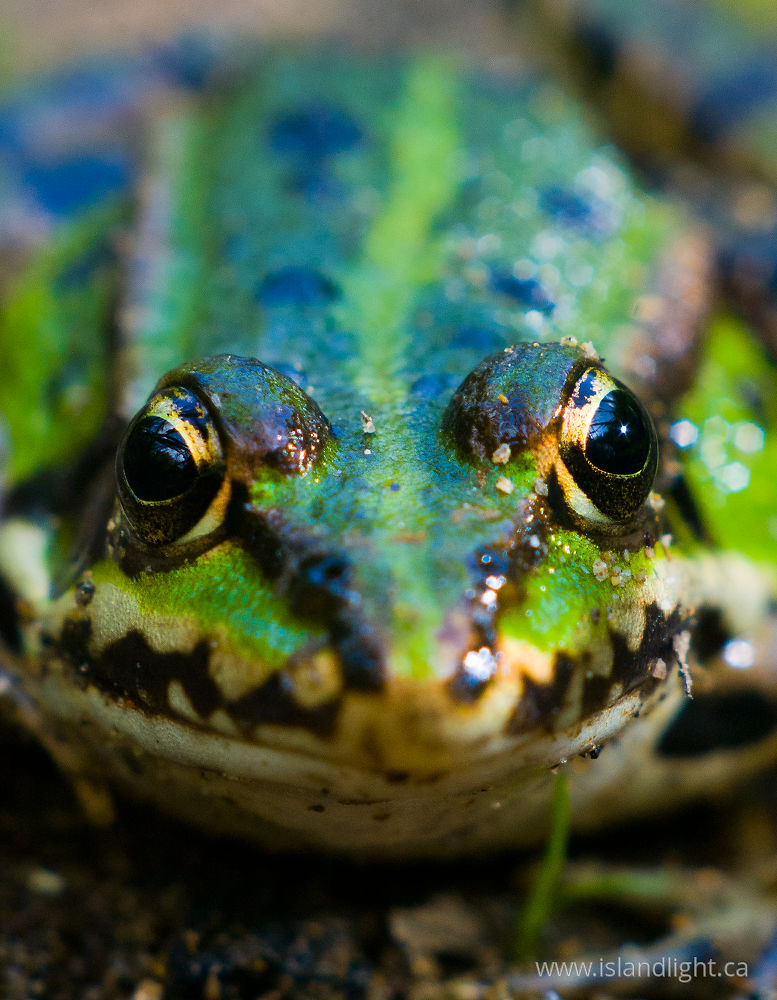
Frog stockphoto from Aillevillers HauteSaone, France Island Light Photography
19 types of frogs that live in France: #1. African Clawed Frog Xenopus laevis Identifying Characteristics: Adults are about 12 cm long. Their flattened, oval-shaped bodies are wider at the back, with very large hind legs and completely webbed back feet. Their coloring is brown, gray, or black with lighter marbling and a white or light brown belly.

Common tree frog portrait, La Brenne, France . Nachrichtenfoto Getty Images
The craving for frog meat appears highest in Belgium, which takes 70% of the imports, but Pro Wildlife says most of these are then sent on to France, which directly imports 16.7%. The Netherlands.